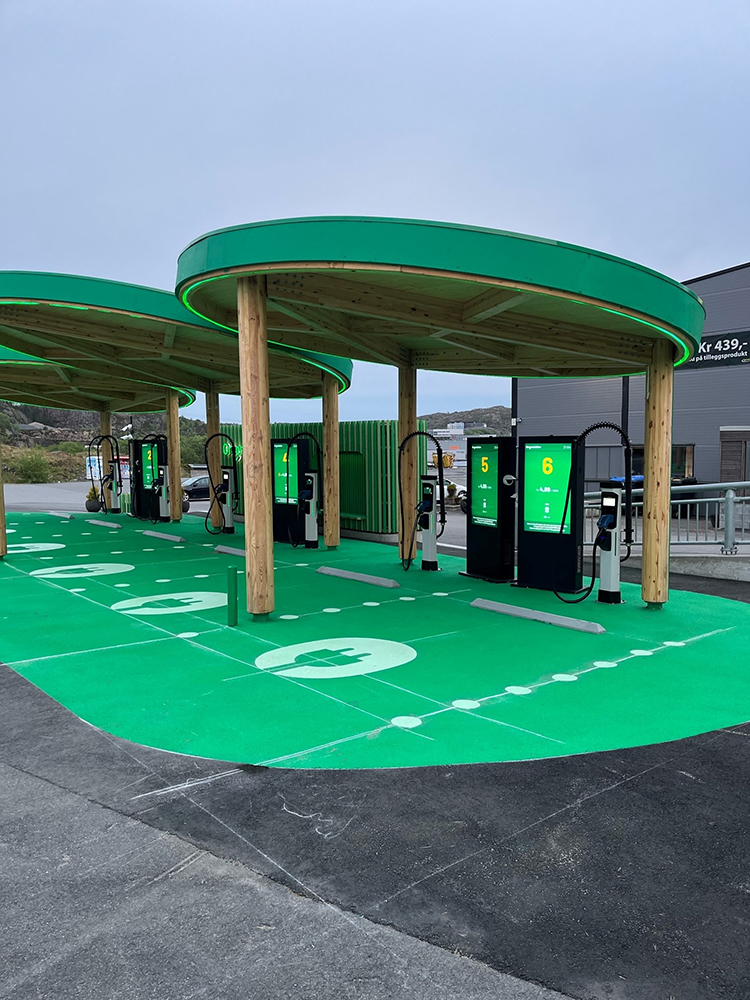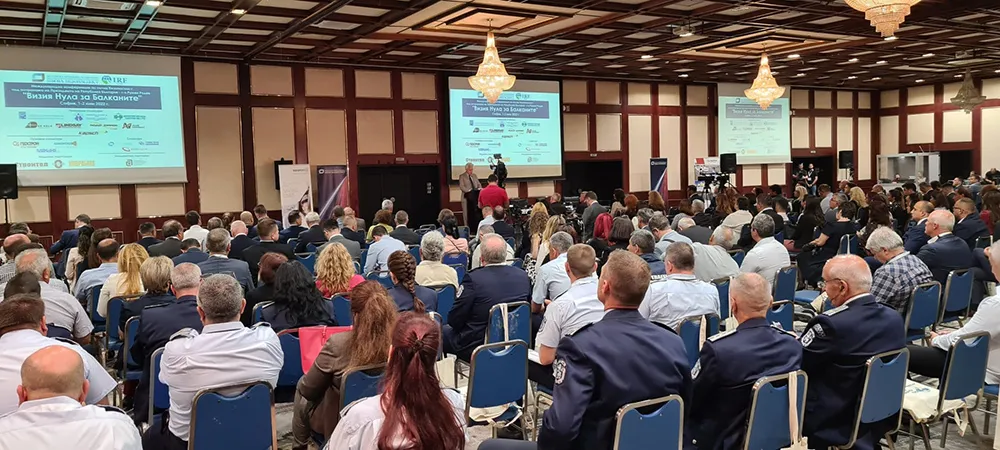
As a leading manufacturer and supplier of road marking materials, Geveko Markings has spent the past 100 years enhancing road safety with products designed to meet the highest standards of quality and durability - and they are committed to continuing this vital mission. With a clear focus on the future, sustainability and inclusive infrastructure, Geveko Markings continues its journey towards making the roads safer.
“At Geveko Markings, road markings are more than lines on asphalt. They are lifesavers that increase safety and provide direction,” says Per Nielsen, business unit director for northern and central Europe. “While developing durable, high-performing materials is a complex process, our aspiration is simple. We are driven by a vision to create high-quality marking materials that guide, inspire and protect millions of people every day.”
Global commitment
The Vision Zero initiative has transformed the approach to road safety. It emphasises shared responsibility among governments, manufacturers and individuals. The European Union has adopted this ambitious initiative, aiming to eliminate road fatalities by 2050 through different strategies. These include lowering speed limits, creating pedestrian-friendly infrastructure and incorporating advanced safety technologies.
Road markings are a fundamental part of bringing these strategies to life as they maintain the orderly flow of traffic, helping reduce congestion and accidents. They provide crucial visibility at night and during adverse weather, ensuring safety even in challenging conditions. With the rise of advanced driver-assistance systems (ADAS), the durability and visibility of road markings are becoming even more essential, serving as guides not just for human drivers but also for autonomous vehicles.
Henrik Nielsen-Thorup, regional sales manager for the Nordic region, explains how Geveko Markings’ products exemplify this. “Our Type II markings deliver exceptional visibility in wet or dark conditions, ensuring safer navigation for both humans and ADAS-equipped vehicles. For example, we have developed a hot-applied thermoplastic which is applied in a unique droplet-shaped pattern and used with great success on Danish highways. This future-proof solution enhances safety in two ways. It provides high visibility in challenging conditions and delivers audible rumble noise and noticeable vibration when crossed to alert drivers.”
With advanced road marking solutions like these, Geveko Markings demonstrates how infrastructure improvements can play a critical role in advancing Vision Zero’s objectives for safer roads.
Sustainability: A road forward
As the EU places increasing emphasis on sustainable transport, Geveko Markings is committed to developing more environmentally friendly solutions. The company is actively focusing on creating materials designed to reduce carbon footprints, aligning with the EU’s Green Deal objectives.
Road markings are essential for promoting sustainable transport modes such as cycling and micromobility. Geveko Markings’ products help create dedicated lanes and safe-zones for bicycles and e-scooters, making streets more inclusive and accessible. By supporting these sustainable transport modes, these markings contribute to healthier, lower-carbon urban environments and encourage the shift towards greener cities.

Clearly defined spaces encourage people to choose sustainable transportation options, directly supporting Vision Zero’s twin goals of safety and sustainability, notes Arnaud Derasse, Benelux region manager. “This approach highlights Geveko Markings’ commitment to innovating for a greener future while balancing road safety and encouraging a shift away from car dependency, lowering emissions and fostering more accessible urban spaces.”
Certified quality
Geveko Markings ensures rigorous testing and validation, including practical road trials, to establish quality and performance of all its products, explains Moritz Bähr, head of product management for Europe. “Certification is our promise of quality. It guarantees that our materials meet all technical requirements, providing safer traffic flow for everyone,” says Bähr. “By developing and continuously fine-tuning solutions like preformed markings, hot-applied thermoplastic and plural-component systems, we make sure that our product portfolio ensures the right fit for diverse traffic and environmental demands.”
The European Union's focus on smart and self-explanatory roads aligns closely with Geveko Markings’ goals. As the EU’s Expert Group on Road Infrastructure Safety (EGRIS) works toward standardised markings, companies including Geveko Markings play a critical role in translating these policies into practice.
Uniting for safer roads
But in the pursuit of safer, more sustainable and efficient mobility, it is imperative for the road marking industry to unite and embark on a collective mission. This will also involve engaging politicians, civil servants and specifiers to elevate the importance of road marking materials and enhance the performance and testing of these products. Achieving the ambitious aim of eliminating fatalities on our roads necessitates a deeper collaboration within the road industry to overcome existing barriers, such as funding and procurement challenges that hinder swift adoption of innovative solutions.
Surveys conducted by the Local Council Roads Innovation Group in the UK show that local councils often lack the necessary resources and expertise to implement cutting-edge road marking solutions. Therefore, fostering collaboration across the supply chain and forming strategic partnerships with local authorities is crucial.
Geveko Markings exemplifies the power of such partnerships, showcasing how private companies can support public authorities in realising ambitious objectives such as Vision Zero. “Our collaboration with lobbyist associations is vital to us,” says David Bryant, director and country manager for the UK and Ireland. “It focuses on increasing attention to road marking materials and the performance and testing of road marking products to continuously enhance road safety.”
By working together, the road marking industry can make significant strides toward achieving a safer and more sustainable transportation environment for all.
Safety for everyone
Cities worldwide face an urgent need to update their infrastructure to accommodate increasing city centre traffic. One effective solution is to encourage a shift from cars to smaller, eco-friendly transport modes - micromobility. For micromobility options to become reliable alternatives to traditional transportation, safety is essential. People need to feel secure when using them. This starts with well-designed spaces and dedicated lanes designed to accommodate a clearly defined traffic separation with safe-zones for vulnerable road users such as pedestrians and cyclists.
“Whether it be coloured areas, safe parking or clearly marked bike lanes, our markings allow vulnerable road users to ride safely at their own speed,” explains Alexander Sezer, country manager for Germany, Austria and Switzerland. “This creates less risks of accidents without affecting the flow of road traffic.”
Journey continues
The integration of ADAS, the push for net-zero transportation and Vision Zero commitments are the future of road infrastructure. Geveko Markings is poised to take part in this transformation to a safer and more sustainable tomorrow.
“When we talk about our passion for road markings, it is not just about lines on the road,” concludes Nielsen. “It is a passion for future-proving traffic with ADAS. A passion for sustainable development with micromobility. And a passion for ensuring that all road users feel safe in traffic.”
*Produced in association with Geveko Markings









